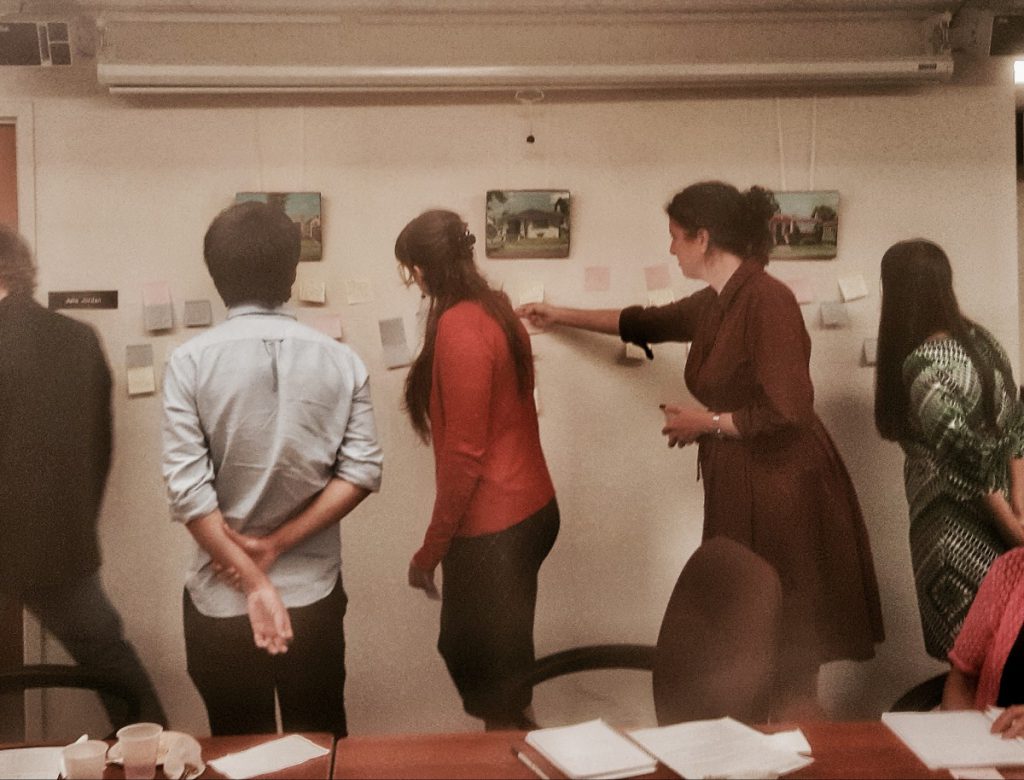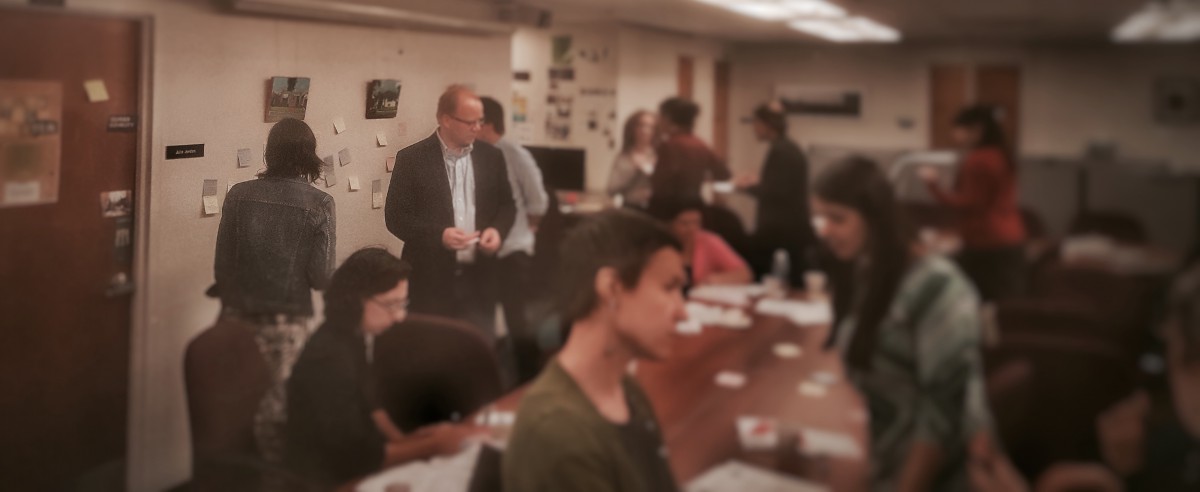There are questions about authorship and intellectual property that I wouldn’t have imagined asking 10 years ago. #digped
— Jesse Stommel (@Jessifer) March 1, 2013
On the eve of Thursday September 28th, faculty, staff and graduate students from across CUNY gathered in City Tech’s Faculty Commons (N227) to discuss Copyright and Attribution on the OpenLab and other open digital platforms. Joining a growing group of scholars, our sense is that open digital environments are challenging long-standing notions of copyright and attribution, but in what ways, to what ends, and how are scholars and students thinking about and navigating these shifts in meaning and practice? This first Open Pedagogy event of the semester was organized around digging into these questions.
We began the evening by continuing a past Twitter conversation started by Hybrid Pedagogy. Using the hashtag #digped, “Plagarism Undone” highlights the complexities – new and old – of copyright and attribution, with attention to how technological developments have stretched and remixed long-standing interpretations of copyright, and what this means for scholars with regards to their own research AND pedagogy. In continuing this conversation, we carried out an analog, embodied twitter-like conversation where event participants wrote down tweet-like phrases on post-it notes and stuck them to the wall. We used the questions below as prompts for this activity. After an initial ‘posting’, participants reviewed others’ posts, taking some back to their seats to respond to with a second post-it note.
When creating and sharing content for research and pedagogy, how do you think about ownership and citation?
How was working on the OpenLab (or other open digital platforms) changed your ideas about authorship and remixing?
We plan to share these ‘tweets’ publicly via the OpenLab Twitter account (more info forthcoming!), however, for the evening, these ‘tweets’ worked to get the conversation going. Among these initial openings and throughout the evening, participants raised questions about: balancing openness and sharing with authorship and attribution and what the tipping point is between wanting to share and wanting to get recognition and compensation for your work; about whether and in what ways pedagogical materials are also scholarship and what responsible sharing and remixing looks like; and how we might begin to cultivate a culture of sharing and attribution with colleagues and students on the OpenLab and beyond.

In addition to these open-ended questions, the event, with the help of librarian, professor and guest speaker Nora Almeida, also addressed some practical challenges. Below we’ve included these questions with some of the responses and resources that were mentioned during the event.
What are my options with respect to copyright?
In addition to traditional copyright – which reserves all rights of use for the creator – you can look into Creative Commons licensing, which provide multiple options for sharing and licensing your work. The OpenLab uses a version of Creative Commons, as does all content on the OpenLab unless otherwise specified.
[prezi id=’https://prezi.com/mpktclfycnyf/creative-commons-v-copyright/’]
How can I respect the copyright preferences of others?
First you should check the licensing on the work. If you don’t seen any copyright information, it is usually safe to assume they are using a traditional copyright license, which automatically applies to original work by default. The use of others’ photos and images was a particular point of interest. The OpenLab has some tips here.
What are some strategies others have used to discuss copyright and attribution with their students?
Talking about copyright and attribution with students often takes the form of a cautionary conversation about plagiarism, however, there may be more productive ways of having this conversation. For example, in open digital environments like the OpenLab, students too are putting their intellectual property out there. How would they feel if someone used their work as their own? What if that person made money off it or benefitted in some other way? You might also consider having students reflect on some recent interesting copyright cases such as the nature photographer who is claiming selfies taken by monkeys as his own or the artist who is profiting off of others Instagram photos.
@JesseBalanyk @Jessifer Seems like demonizing plagiarism helps create atmosphere of fear, rather than conversations about writing. #digped
— Janine DeBaise (@writingasjoe) March 1, 2013
We hope this recap sparks your thinking around copyright and attribution and we encourage you to chime in here with questions and comments and keep this conversation going.
In addition, we encourage you to attend our related workshop on Thursday October 5th from 2:30-4:00pm in room G604. RSVP here!
In preparation for the workshop, or to learn more about this topic, visit our event posting for a list of short, relevant readings.
Lastly, our next Open Pedagogy event will be on Thursday October 26th from 5:30-7:00pm in the Faculty Commons (N227). This event, titled Teaching and Learning with Annotation, is a ‘Part 2’, building on an event on Annotating Texts in Open Digital Pedagogy held in February 2016. Refreshments and snacks will be provided, and part-time faculty will receive a stipend for attending. This event will also have a related workshop – more information here.





Hi Jill and Jody and all the attendees.
Thanks for hosting the attribution/copyright session last week. I definitely need to keep studying new trends so that the journal that I edit (NANO: New American Notes Online) stays current. It was a useful and lively discussion.
Here are a few links as requested:
1. NANO Home: https://www.nanocrit.com/
2. Issue 10: Originality in a Digital Age: https://www.nanocrit.com/issues/issue10
3. “Camera Copia: Reflections on Rephotography in the Instagram Age”
by Siobhan Lyons: https://www.nanocrit.com/issues/issue10/camera-copia-reflections-rephotography-instagram-age
Feel free to link and repost these URLs as desired. And if you have any questions or comments about the journal, please contact me.
Best,
Sean Scanlan